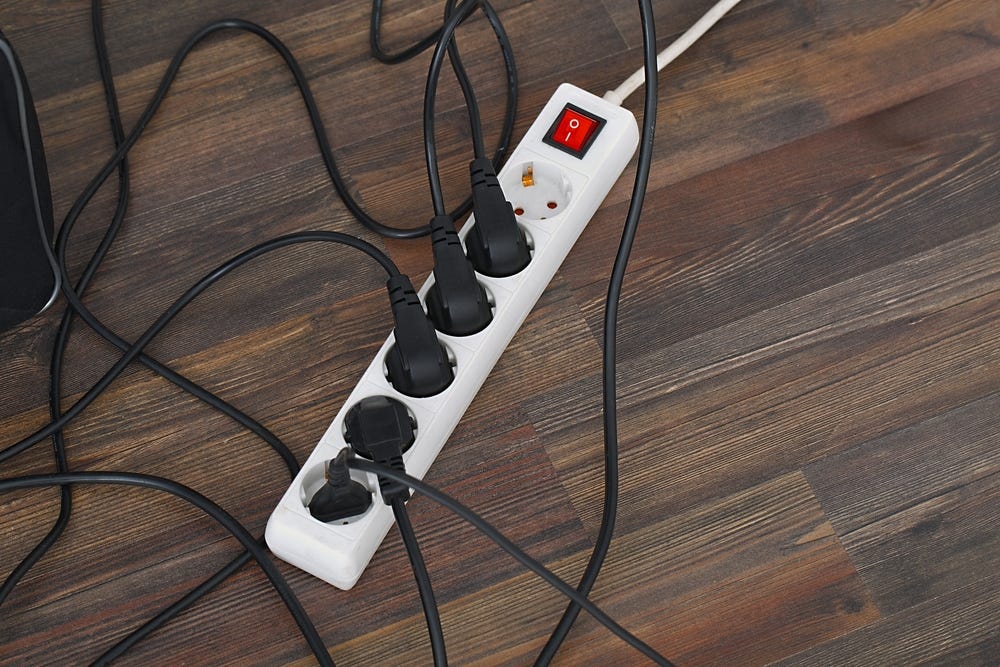How to avoid electrical fires at home
Kwame’s room is more than a theatre. Television is blasting with room theatre, the water cooler and games consoles are all plugged into one socket.
Such is the load that sometimes he could smell something burning but he always brushed it off, after all, he couldn’t see any smoke.
Then the family bought a new freezer which could not be in the kitchen, so the refrigerator was moved to the hall to make room for the freezer in the kitchen.
There was only one space left on the jammed extension board—he plugged in the refrigerator before going to bed.

When his wife, Araba, was forced by the call of nature to wake up around 3 am, she smelled an unpleasant scent and went round checking what it could be.
She met horror in the hall. The extension board had melted and caught fire.
She screamed her husband’s name as he scrambled to the hall half asleep, half awake.
He rushed to switch off the electrical metre before dousing the flames with the fire extinguisher. It was a near escape with a disaster.
Although this is fictional, it is the reality in some homes, the Ghana National Fire Service investigations have revealed.
YOU MAY ALSO LIKE: How Not To Burn Down Your House
Here is what to do avoid such fires:
- Never overload electrical outlets and circuits. Overloaded electrical outlets, or circuits that supply power to several outlets, is a major cause of residential fires. Overloaded outlets and circuits carry too much electricity, which generates heat in undetectable amounts. The heat causes wear on the internal wiring system and can ignite a fire.
- All wiring systems have circuit breakers or fuses that disconnect power when circuits become overloaded. However, an improperly sized fuse or breaker can cancel this built-in safety feature.
- To prevent overloading, never plug more than two appliances into an outlet at once extra appliances on extension cords or wall outlets. Use only outlets designed to handle multiple plugs.
- Give special consideration to appliances that use 1,000 or more watts, such as air conditioners, refrigerators, hot plates, irons, microwave ovens, dishwashers, heaters, and deep fryers. Avoid plugging them into the same outlet or circuit. To use these appliances safely, know which outlets are connected to the same electrical circuit in your home. Do not exceed 1,500 watts for each outlet or circuit.
About your car
- Secure your oil and gas caps properly.
- Pay attention to if your vehicle is overheating. A hot engine can cause fluids, such as oil or coolant, to leak. When fluids drip onto hot areas of the engine, they can start a fire.
- If your exhaust system is too hot, have it checked. An overheating catalytic converter that comes into contact with dry grass or any flammable material can spark a fire.
- Do not smoke in your car. Cigarettes are a common cause of fires, including in vehicles. Embers may fall on the seat or floor carpet and start a fire. If you can’t wait until you arrive at your destination to smoke, stopover in a safe place to smoke, and extinguish your cigarette properly.
- Make sure you get a fire extinguisher to serve as first aid in case of any eventuality.
Call 112 in case of emergency
Stay safe and have a fire-free January…
#Akosuafire




Thanks for the education Akosua